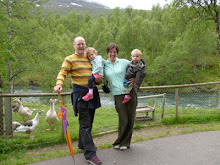
So I am back from my training course in Brighton and it was so nice to be soemwhere that vegan food is widely available. Of course you need to know where to go but that doesn't take long to find out. Waitrose was handy for a quick hummus, carrot and salad sandwich, the Sanctuary cafe beautiful for home made vegan soups and salads and the selection of thai restaurants with so much choice of vegan, especially tofu dishes was lovely. Paskins Town House where I stayed was a delight and possibly make the best vegan breakfasts going...but enough of that! Today I want to talk about something else....Wine!
I never stopped to think about what was in the wine I drink. Usually I think carefully about everything, especially the food I eat as so many animal parts turn up in the least expected things and clothes and shoes need to be checked out thoroughly for animal skins etc but wine, well, wine is just grapes isn't it?
NO!!!
I watched a documentary about what was in wine and I must say I was and still am horrified! Not only at the amount of sugar and additives I have been gulping down but also how un-vegan most alcohol is. I have, until yesterday, been drinking Guinness twice a week as I discovered last year that it was an easier cure for my low iron than using iron tablets (and no, the low iron isn't because I don't eat steak as my mother and grandmother, huge meat consumers, both have this too) yet now I have learnt that stout is fined using fish bladders. Yum. So, no more Guinness for me. Well, at least I can enjoy a glass of wine. Um. No, actually. Most wines too are fined using fish bladders, or if not, using egg whites. Some wines even contain traces of milk. Put you off? Yes, did me too. So what do we vegans do? I have looked around and found a few sites which list vegan wines, usually listed by which Supermarket you can get them. It doesn't help me so much seeing as here in Norway you can only buy wine from the government wine store and they have only a limited selection of which I have no idea if they will contain traces of animal parts and secretions or not. I did send them an email two days ago but no reply as of yet and I am not hopeful of any reply at all (that's how some things work here). So if you know of a truly informative website which lists many vegan wines please let me know and I can email the goverment store and request them.
Of course, I could go teetotal and cut out all alcohol (some vodkas and other spirits also use animal parts in the processing by the way) but I don't really want to.... but I won't make animals suffer for my wants so we will have to see...!
Friday, 26 September 2008
Vegan Wine
Posted by
Jill Forrest
at
12:22
4
comments
![]()
![]()
Labels: vegan wine, whats in your wine, wine
Wednesday, 10 September 2008

Today's post is one where I share some information I have found which I feel is really valuable to the vegan/vegetarian cause. The below excerpt is from this months Time magazine. The article is called 'Skip the Steak'. In doing so you can save the lives of animals who suffer on a daily basis. You know what you should do. Just do it.
Skip the Steak
By Bryan Walsh
Which is responsible for more global warming: your BMW or your Big Mac? Believe it or not, it's the burger. The international meat industry generates roughly 18% of the world's greenhouse-gas emissions—even more than transportation—according to a report last year from the U.N.'s Food and Agriculture Organization.
Much of that comes from the nitrous oxide in manure and the methane that is, as the New York Times delicately put it, "the natural result of bovine digestion." Methane has a warming effect that is 23 times as great as that of carbon, while nitrous oxide is 296 times as great.
There are 1.5 billion cattle and buffalo on the planet, along with 1.7 billion sheep and goats. Their populations are rising fast, especially in the developing world. Global meat production is expected to double between 2001 and 2050. Given the amount of energy consumed raising, shipping and selling livestock, a 16-oz.T-bone is like a Hummer on a plate.
If you switch to vegetarianism, you can shrink your carbon footprint by up to 1.5 tons of carbon dioxide a year, according to research by the University of Chicago. Trading a standard car for a hybrid cuts only about one ton—and isn't as tasty.
And here is the Guardian's view
UN says eat less meat to curb global warming
· Climate expert urges radical shift in diet
· Industry unfairly targeted - farmers
* Juliette Jowit, environment editor
* The Observer,
* Sunday September 7 2008
* Article history
A joint of beef
A joint of beef. Photograph/Alamy
People should have one meat-free day a week if they want to make a personal and effective sacrifice that would help tackle climate change, the world's leading authority on global warming has told The Observer
Dr Rajendra Pachauri, chair of the United Nations Intergovernmental Panel on Climate Change, which last year earned a joint share of the Nobel Peace Prize, said that people should then go on to reduce their meat consumption even further.
His comments are the most controversial advice yet provided by the panel on how individuals can help tackle global warning.
Pachauri, who was re-elected the panel's chairman for a second six-year term last week, said diet change was important because of the huge greenhouse gas emissions and other environmental problems - including habitat destruction - associated with rearing cattle and other animals. It was relatively easy to change eating habits compared to changing means of transport, he said.
The UN's Food and Agriculture Organisation has estimated that meat production accounts for nearly a fifth of global greenhouse gas emissions. These are generated during the production of animal feeds, for example, while ruminants, particularly cows, emit methane, which is 23 times more effective as a global warming agent than carbon dioxide. The agency has also warned that meat consumption is set to double by the middle of the century.
'In terms of immediacy of action and the feasibility of bringing about reductions in a short period of time, it clearly is the most attractive opportunity,' said Pachauri. 'Give up meat for one day [a week] initially, and decrease it from there,' said the Indian economist, who is a vegetarian.
However, he also stressed other changes in lifestyle would help to combat climate change. 'That's what I want to emphasise: we really have to bring about reductions in every sector of the economy.'
Pachauri can expect some vociferous responses from the food industry to his advice, though last night he was given unexpected support by Masterchef presenter and restaurateur John Torode, who is about to publish a new book, John Torode's Beef. 'I have a little bit and enjoy it,' said Torode. 'Too much for any person becomes gluttony. But there's a bigger issue here: where [the meat] comes from. If we all bought British and stopped buying imported food we'd save a huge amount of carbon emissions.'
Tomorrow, Pachauri will speak at an event hosted by animal welfare group Compassion in World Farming, which has calculated that if the average UK household halved meat consumption that would cut emissions more than if car use was cut in half.
The group has called for governments to lead campaigns to reduce meat consumption by 60 per cent by 2020. Campaigners have also pointed out the health benefits of eating less meat. The average person in the UK eats 50g of protein from meat a day, equivalent to a chicken breast and a lamb chop - a relatively low level for rich nations but 25-50 per cent more than World Heath Organisation guidelines.
Professor Robert Watson, the chief scientific adviser for the Department for Environment Food and Rural Affairs, who will also speak at tomorrow's event in London, said government could help educate people about the benefits of eating less meat, but it should not 'regulate'. 'Eating less meat would help, there's no question about that, but there are other things,' Watson said.
However, Chris Lamb, head of marketing for pig industry group BPEX, said the meat industry had been unfairly targeted and was working hard to find out which activities had the biggest environmental impact and reduce those. Some ideas were contradictory, he said - for example, one solution to emissions from livestock was to keep them indoors, but this would damage animal welfare. 'Climate change is a very young science and our view is there are a lot of simplistic solutions being proposed,' he said.
Last year a major report into the environmental impact of meat eating by the Food Climate Research Network at Surrey University claimed livestock generated 8 per cent of UK emissions - but eating some meat was good for the planet because some habitats benefited from grazing. It also said vegetarian diets that included lots of milk, butter and cheese would probably not noticeably reduce emissions because dairy cows are a major source of methane, a potent greenhouse gas released through flatulence.
Posted by
Jill Forrest
at
12:07
0
comments
![]()
![]()



